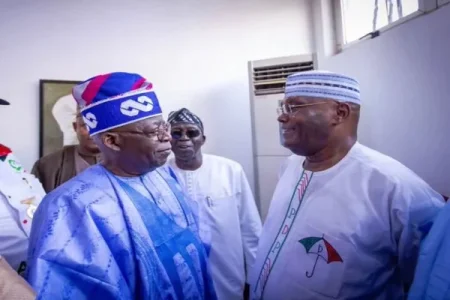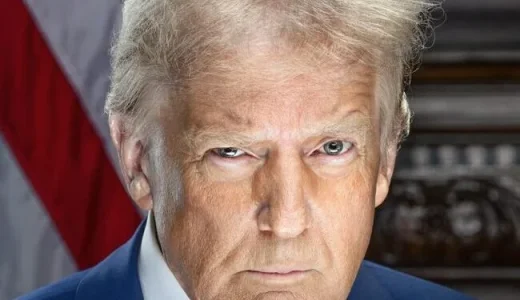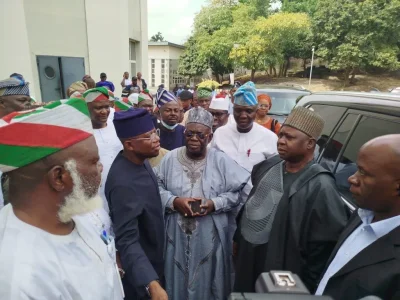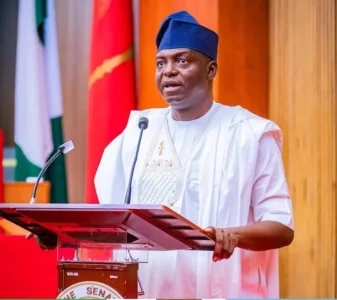
Former Vice President Atiku Abubakar asserts his pivotal role in safeguarding Bola Tinubu's political future during Nigeria's early Fourth Republic.
In a recent statement, former Vice President Atiku Abubakar stirred the political waters by asserting his pivotal role in safeguarding the political future of Bola Tinubu during his tenure as Lagos State governor. Atiku vehemently rebutted claims suggesting that it was Tinubu who provided refuge for him during times of political turmoil, asserting instead that it was his support that bolstered Tinubu's position.
According to Atiku, without his backing, Tinubu's tenure as governor might have faced significant challenges, even risking impeachment. He emphasized the importance of his pro-democracy stance and adherence to the rule of law in bolstering Tinubu's political career during a tumultuous period in Nigerian politics.
This revelation has reignited debates surrounding the intricate alliances and power dynamics that characterized Nigeria's political landscape during the early Fourth Republic. Atiku's assertion challenges prevailing narratives and raises questions about the true nature of political relationships within the country.
Vice President Kashim Shettima's recent remarks, attributing Tinubu's support to Atiku during moments of political persecution, have added fuel to the fire. Atiku's response, however, challenges Shettima's narrative and underscores the complexity of political alliances during that period.
Furthermore, Atiku has called for a reexamination of the historical record, clarifying that he did not run under the Action Congress of Nigeria (ACN) but rather the Action Congress (AC). He highlighted the diverse array of delegates involved in his nomination as the presidential candidate, emphasizing that Tinubu's influence was not as significant as claimed.
As the political discourse intensifies, analysts and stakeholders are divided over the implications of Atiku's assertions. Some view it as a strategic move ahead of the 2023 elections, while others see it as an attempt to rewrite history and bolster Atiku's political standing.
Amidst these conflicting narratives, one thing remains clear: Atiku's claim has opened a Pandora's box of political intrigue, prompting a reassessment of Nigeria's political history and the relationships that shaped it. As the nation gears up for another election cycle, the significance of these revelations cannot be understated, shaping the contours of political discourse for years to come.




